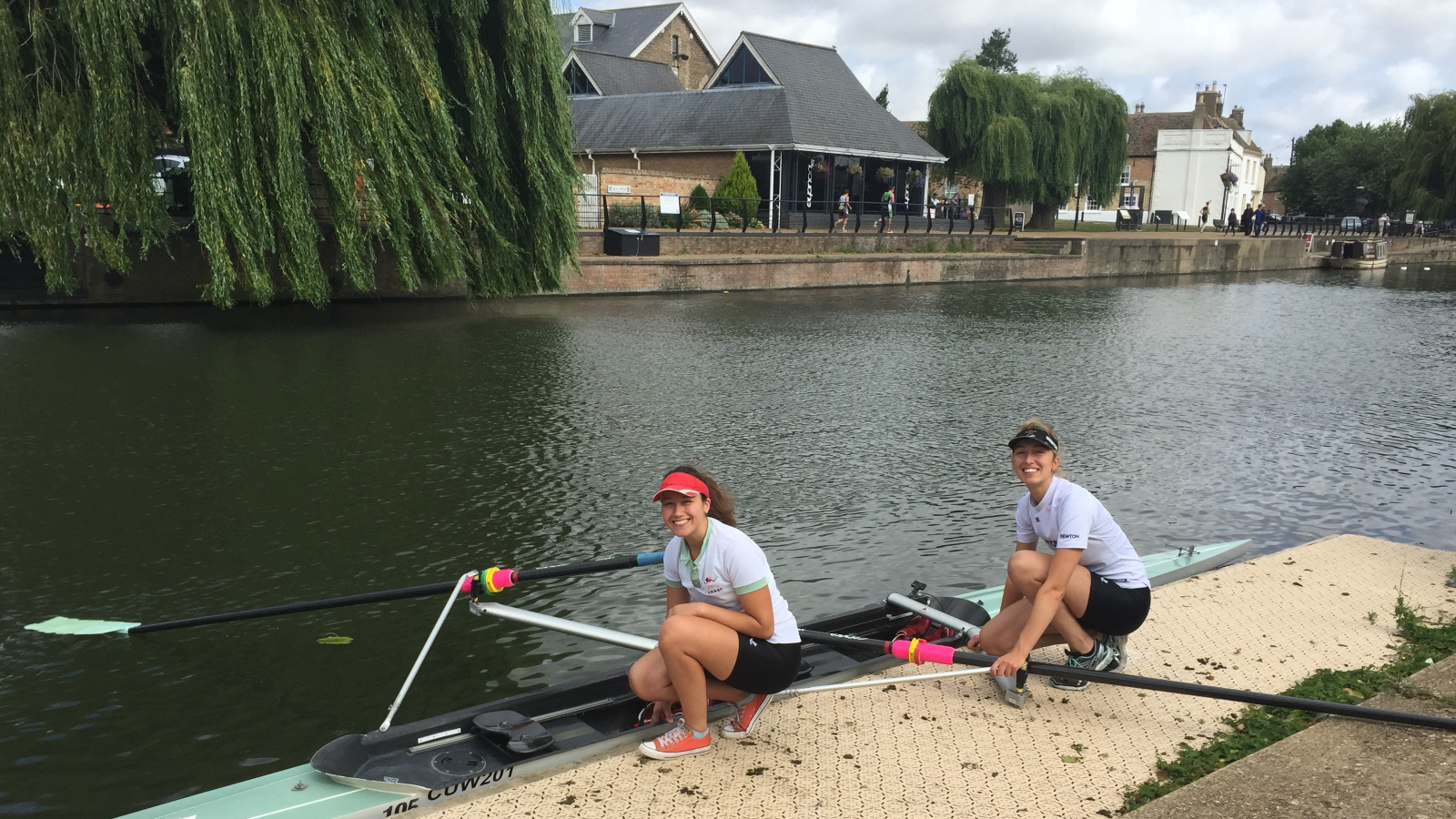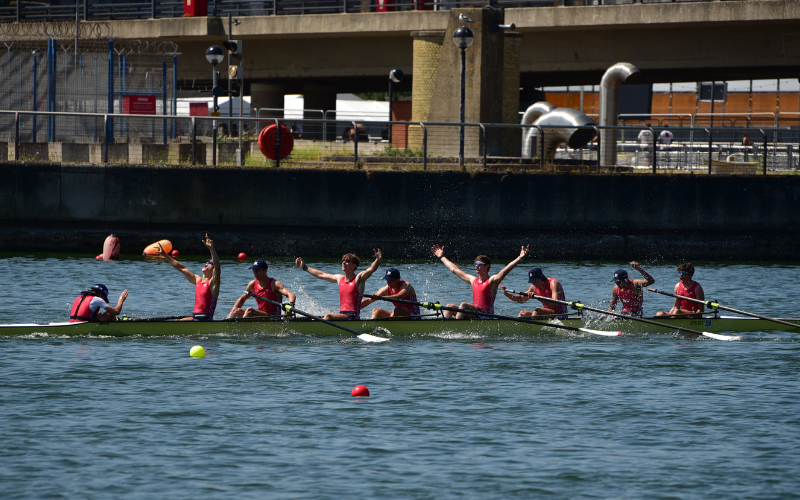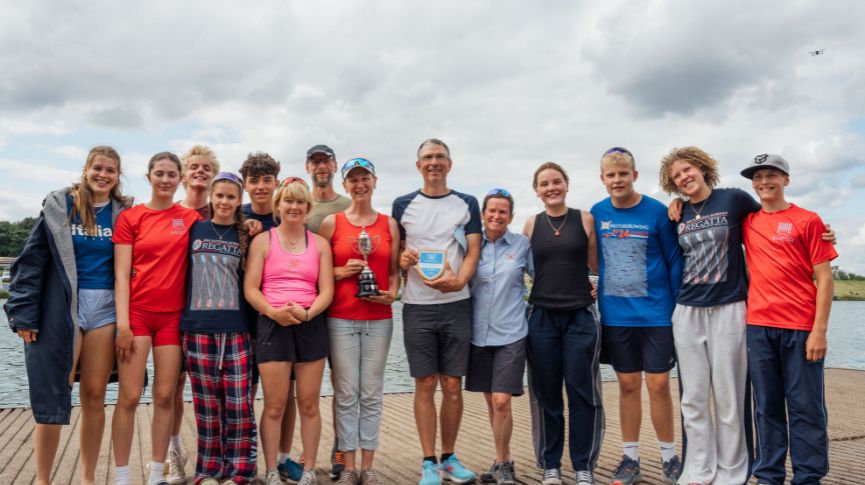GB rower Oonagh Cousins and Ella Barnard on ‘Long Covid’
Coronavirus symptoms can sometimes be extremely long-lasting and debilitating – Oonagh Cousins and Ella Barnard share their experiences of ‘Long Covid’

Ella and Oonagh
Oonagh Cousins and Ella Barnard are friends who met while rowing at the University of Cambridge. They both contracted Covid-19 in March and have suffered from post-viral fatigue, a syndrome that can occur after various viral infections. In cases involving the coronavirus, this is also being described as ‘Long Covid’.
So Oonagh, why don’t you introduce yourself and explain a bit about why we are writing this blog?
Oonagh: I’ve been a rower on the GB Rowing Team since February 2019 and was provisionally selected in the women’s eight for the 2020 season before the Olympics was postponed. Post-viral fatigue has meant I have been unable to train for seven months. We want to write this blog because post-viral fatigue is not widely understood or discussed and we think it is important to start a conversation about it.
Your turn, Ella!
Ella: I’m an Army officer and club rower, having rowed as a junior, at Cambridge and then at club level. My experiences with post-viral fatigue started in 2018 when I developed glandular fever and this syndrome as a result. After improving a lot, I was able to live a normal life until I contracted the flu in November 2019 and then Covid-19 in March 2020. These illnesses brought back a lot of my post-viral symptoms and since then I have been off full-time work, in order to recover.
As I have experienced, post-viral fatigue can be triggered by different viruses, but there are many people suffering at the moment as a result of the Covid-19 pandemic.
Oonagh: I think we should begin with when we first got Covid-19.
When I got infected I did not get bad coronavirus symptoms; I have had worse colds, and for a while I continued training through it. It was at the time when information about the virus was only just coming out and nobody recognised that I had it. However, I did have a persistent cough for six weeks, I lost my sense of taste and smell and I became very tired. As we were in the middle of Olympic training I was more run down than normal even before the infection, and it is possible that this has contributed to Long Covid.
“On the worst days you struggle to walk or complete daily tasks such as cooking a meal or composing an email”
Ella: My experience was similar in that my infection was very mild, but in my case I was run down from previous illness. Aside from the initial infection, how would you describe the post-viral fatigue itself?
Oonagh: Symptoms like a complete lack of energy, low moods, nausea and headaches are all common, but it is very unlike other illnesses I have come across. The biggest difference is the lack of a linear recovery.
There is a general trend of progress over time, but you also go through really significant ups and downs.
On the worst days you struggle to walk or complete daily tasks such as cooking a meal or composing an email. As time goes on you are more able to complete small activities such as seeing friends and short jogs.
Fatigue is also a misleading term, because it is so different from “tiredness”, and it is not something you can sleep off. Instead it is better to view it as having very low reserves.
“Spiralling negative thoughts, lacking motivation for anything, a complete absence of hope and a desire to isolate yourself are common”
When you are having a good day, low-level activities can help recovery. However, if you do something that requires more energy than you have, this can cause you to “crash”. You become very fragile physically and mentally. Depending on where you are in your recovery this can take days or weeks to bounce back from – time which you generally spend in bed or on the sofa.
The kind of thing that results in “crashing” can be very minor in comparison to the lives we normally lead. It doesn’t even have to be a physical toll, it can just be expending mental or emotional energy. It could be spending too long out of the house, having to walk further than you planned, a high-energy social situation, or a work meeting that goes on too long.
Bad days can also happen for no apparent reason.
“Recovery requires a holistic approach to living a healthy life, and lots of time!”
Ella: Yes, I remember a day when I needed to get up and go into work to check my emails. I woke up and had a huge rush of adrenaline as if I was about to do a 2k ergo test! It was as if, to gear myself up for this tiny task, my body had to draw on all of its reserves because my energy levels were so depleted.
It is also important to recognise the impact post-viral fatigue has on your mind. Both of us agree that this has given us a lot of insight into the connection between physical and mental health. When we have bad periods both of us experience depression and anxiety.
Even though rationally we know it is the fatigue speaking, spiralling negative thoughts, lacking motivation for anything, a complete absence of hope and a desire to isolate yourself are common. This is the part of the illness we struggle with the most. You can physically rest yourself by staying on the sofa but breaking out of a negative thought cycle can be so much harder. We are motivated and upbeat people when we are well, so it feels like you lose yourself in the illness and that’s a tough headspace to be in.
Fortunately we are starting to show signs of improvement. Oonagh, how would you describe the best way to manage recovery?
“If any rowers are suffering with a viral infection or unusual fatigue, the worst thing they could do is to keep pushing themselves before they are 100% well”
Oonagh: One frustrating aspect is that there is little clinical intervention available. Rather recovery requires a holistic approach to living a healthy life, and lots of time! We manage our daily activity, try to have a good diet, a good sleep routine and to avoid stress. Doing some exercise can be helpful depending on your stage of recovery. Above all, you just have to be patient and let your body heal.
It is also so important to have a good support system and people around you that understand the situation. We feel very lucky to have had each other. As this illness is poorly understood it would be all too easy not to recognise what is happening to you, and to keep trying to push through or (wrongly!) think you’re being a bit weak. It is very reassuring to speak to someone who is going through the same thing and know that what you are experiencing is an illness and not you.
Do you think being a rower has helped you during this process?
Ella: I absolutely think rowing has set me up well to deal with post-viral fatigue. Rowing teaches a lot of mental resilience which is essential when dealing with the long process of recovery. Rowing also teaches you to be in tune with your body. This means you are better at recognising what is aiding or preventing your recovery, and are already used to managing yourself. With post-viral fatigue the margins for error are really small as it’s so easy to overdo it. Being in tune with your body is the only way to recognise what you are capable of on a given day.
The only caution I would give is that rowers can be almost too good at pushing on when their body is telling them to stop! This definitely meant I dug myself into a bigger hole than I needed to when I was first ill, because I just kept going. It is so easy to think you can push through and be fine, but all you will end up doing is delaying recovery. If any rowers out there are suffering with a viral infection or unusual fatigue, the worst thing they could possibly do is to keep pushing themselves before they are 100% well.
Oonagh: I would also emphasise that the initial symptoms can be very mild, but if you have any suspicions that you may have caught the virus it’s really important to stop training right away.
The skills and networks we have from rowing are very helpful in managing post-viral fatigue, but we hope that sharing our experiences might help both those suffering and also those in a position to support them.
With many people affected at the moment, we hope this article will contribute to a wider understanding of this illness.







